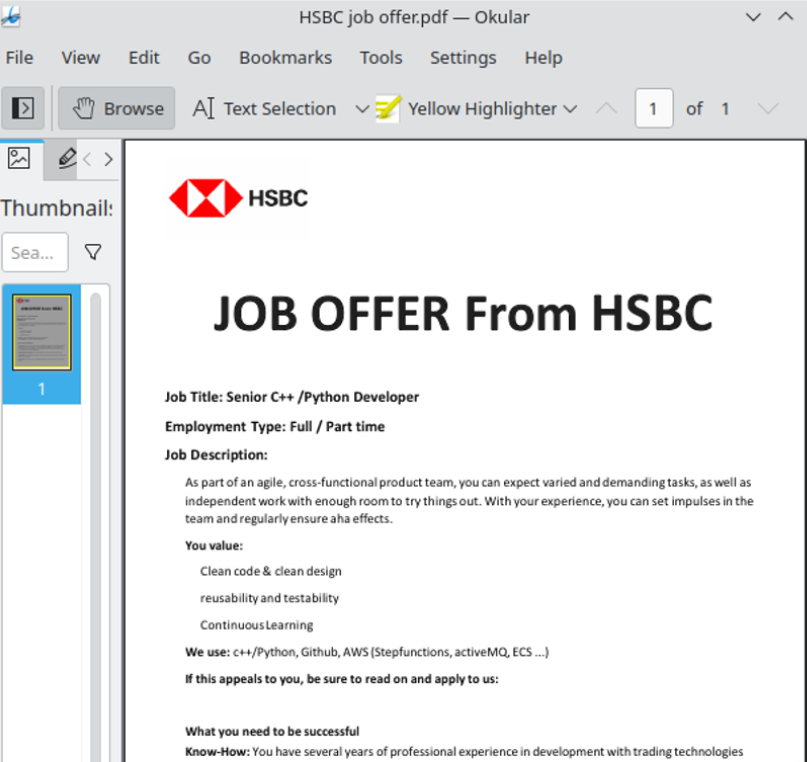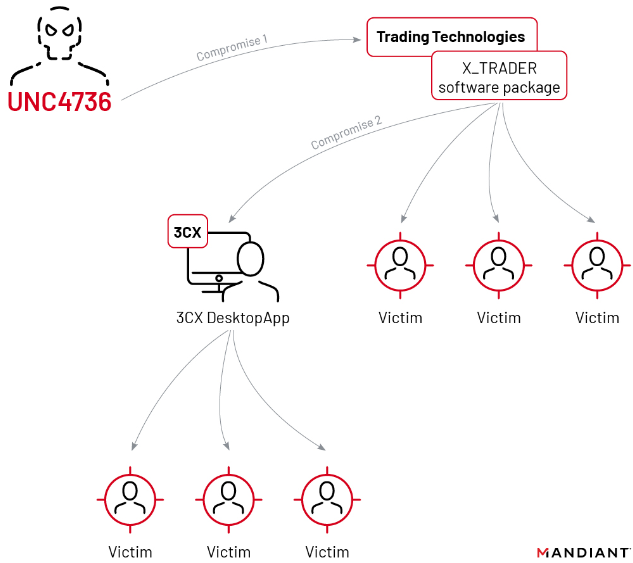



The U.S. Federal Bureau of Investigation (FBI) this week seized 13 domain names connected to “booter” services that let paying customers launch crippling distributed denial-of-service (DDoS) attacks. Ten of the domains are reincarnations of DDoS-for-hire services the FBI seized in December 2022, when it charged six U.S. men with computer crimes for allegedly operating booters.
Booter services are advertised through a variety of methods, including Dark Web forums, chat platforms and even youtube.com. They accept payment via PayPal, Google Wallet, and/or cryptocurrencies, and subscriptions can range in price from just a few dollars to several hundred per month. The services are generally priced according to the volume of traffic to be hurled at the target, the duration of each attack, and the number of concurrent attacks allowed.
The websites that saw their homepages replaced with seizure notices from the FBI this week include booter services like cyberstress[.]org and exoticbooter[.]com, which the feds say were used to launch millions of attacks against millions of victims.
“School districts, universities, financial institutions and government websites are among the victims who have been targeted in attacks launched by booter services,” federal prosecutors in Los Angeles said in a statement.
Purveyors of booters or “stressers” claim they are not responsible for how customers use their services, and that they aren’t breaking the law because — like most security tools — these services can be used for good or bad purposes. Most booter sites employ wordy “terms of use” agreements that require customers to agree they will only stress-test their own networks — and that they won’t use the service to attack others.
But the DOJ says these disclaimers usually ignore the fact that most booter services are heavily reliant on constantly scanning the Internet to commandeer misconfigured devices that are critical for maximizing the size and impact of DDoS attacks. What’s more, none of the services seized by the government required users to demonstrate that they own the Internet addresses being stress-tested, something a legitimate testing service would insist upon.
This is the third in a series of U.S. and international law enforcement actions targeting booter services. In December 2022, the feds seized four-dozen booter domains and charged six U.S. men with computer crimes related to their alleged ownership of the popular DDoS-for-hire services. In December 2018, the feds targeted 15 booter sites, and three booter store defendants who later pleaded guilty.
While the FBI’s repeated seizing of booter domains may seem like an endless game of virtual Whac-a-Mole, continuously taking these services offline imposes high enough costs for the operators that some of them will quit the business altogether, says Richard Clayton, director of Cambridge University’s Cybercrime Centre.
In 2020, Clayton and others published “Cybercrime is Mostly Boring,” an academic study on the quality and types of work needed to build, maintain and defend illicit enterprises that make up a large portion of the cybercrime-as-a-service market. The study found that operating a booter service effectively requires a mind-numbing amount of constant, tedious work that tends to produce high burnout rates for booter service operators — even when the service is operating efficiently and profitably.
For example, running an effective booter service requires a substantial amount of administrative work and maintenance, much of which involves constantly scanning for, commandeering and managing large collections of remote systems that can be used to amplify online attacks, Clayton said. On top of that, building brand recognition and customer loyalty takes time.
“If you’re running a booter and someone keeps taking your domain or hosting away, you have to then go through doing the same boring work all over again,” Clayton told KrebsOnSecurity. “One of the guys the FBI arrested in December [2022] spent six months moaning that he lost his servers, and could people please lend him some money to get it started again.”
In a statement released Wednesday, prosecutors in Los Angeles said four of the six men charged last year for running booter services have since pleaded guilty. However, at least one of the defendants from the 2022 booter bust-up — John M. Dobbs, 32, of Honolulu, HI — has pleaded not guilty and is signaling he intends to take his case to trial.

The FBI seizure notice that replaced the homepages of several booter services this week.
Dobbs is a computer science graduate student who for the past decade openly ran IPStresser[.]com, a popular and powerful attack-for-hire service that he registered with the state of Hawaii using his real name and address. Likewise, the domain was registered in Dobbs’s name and hometown in Pennsylvania. Prosecutors say Dobbs’ service attracted more than two million registered users, and was responsible for launching a staggering 30 million distinct DDoS attacks.
Many accused stresser site operators have pleaded guilty over the years after being hit with federal criminal charges. But the government’s core claim — that operating a booter site is a violation of U.S. computer crime laws — wasn’t properly tested in the courts until September 2021.
That was when a jury handed down a guilty verdict against Matthew Gatrel, a then 32-year-old St. Charles, Ill. man charged in the government’s first 2018 mass booter bust-up. Despite admitting to FBI agents that he ran two booter services (and turning over plenty of incriminating evidence in the process), Gatrel opted to take his case to trial, defended the entire time by court-appointed attorneys.
Gatrel was convicted on all three charges of violating the Computer Fraud and Abuse Act, including conspiracy to commit unauthorized impairment of a protected computer, conspiracy to commit wire fraud, and unauthorized impairment of a protected computer. He was sentenced to two years in prison.
A copy of the FBI’s booter seizure warrant is here (PDF). According to the DOJ, the defendants who pleaded guilty to operating booter sites include:
–Jeremiah Sam Evans Miller, aka “John The Dev,” 23, of San Antonio, Texas, who pleaded guilty on April 6 to conspiracy and violating the computer fraud and abuse act related to the operation of a booter service named RoyalStresser[.]com (formerly known as Supremesecurityteam[.]com);
–Angel Manuel Colon Jr., aka “Anonghost720” and “Anonghost1337,” 37, of Belleview, Florida, who pleaded guilty on February 13 to conspiracy and violating the computer fraud and abuse act related to the operation of a booter service named SecurityTeam[.]io;
–Shamar Shattock, 19, of Margate, Florida, who pleaded guilty on March 22 to conspiracy to violate the computer fraud and abuse act related to the operation of a booter service known as Astrostress[.]com;
–Cory Anthony Palmer, 23, of Lauderhill, Florida, who pleaded guilty on February 16 to conspiracy to violate the computer fraud and abuse act related to the operation of a booter service known as Booter[.]sx.
All four defendants are scheduled to be sentenced this summer.
The booter domains seized by the FBI this week include:
cyberstress[.]org
exoticbooter[.]com
layerstress[.]net
orbitalstress[.]xyz
redstresser[.]io
silentstress[.]wtf
sunstresser[.]net
silent[.]to
mythicalstress[.]net
dreams-stresser[.]org
stresserbest[.]io
stresserus[.]io
quantum-stress[.]org
As the war shows no signs of ending and cyber-activity by states and criminal groups remains high, conversations around the cyber-resilience of critical infrastructure have never been more vital
The post How the war in Ukraine has been a catalyst in private‑public collaborations appeared first on WeLiveSecurity




A shocking number of organizations — including banks and healthcare providers — are leaking private and sensitive information from their public Salesforce Community websites, KrebsOnSecurity has learned. The data exposures all stem from a misconfiguration in Salesforce Community that allows an unauthenticated user to access records that should only be available after logging in.

A researcher found DC Health had five Salesforce Community sites exposing data.
Salesforce Community is a widely-used cloud-based software product that makes it easy for organizations to quickly create websites. Customers can access a Salesforce Community website in two ways: Authenticated access (requiring login), and guest user access (no login required). The guest access feature allows unauthenticated users to view specific content and resources without needing to log in.
However, sometimes Salesforce administrators mistakenly grant guest users access to internal resources, which can cause unauthorized users to access an organization’s private information and lead to potential data leaks.
Until being contacted by this reporter on Monday, the state of Vermont had at least five separate Salesforce Community sites that allowed guest access to sensitive data, including a Pandemic Unemployment Assistance program that exposed the applicant’s full name, Social Security number, address, phone number, email, and bank account number.

This misconfigured Salesforce Community site from the state of Vermont was leaking pandemic assistance loan application data, including names, SSNs, email address and bank account information.
Vermont’s Chief Information Security Officer Scott Carbee said his security teams have been conducting a full review of their Salesforce Community sites, and already found one additional Salesforce site operated by the state that was also misconfigured to allow guest access to sensitive information.
“My team is frustrated by the permissive nature of the platform,” Carbee said.
Carbee said the vulnerable sites were all created rapidly in response to the Coronavirus pandemic, and were not subjected to their normal security review process.
“During the pandemic, we were largely standing up tons of applications, and let’s just say a lot of them didn’t have the full benefit of our dev/ops process,” Carbee said. “In our case, we didn’t have any native Salesforce developers when we had to suddenly stand up all these sites.”
Earlier this week, KrebsOnSecurity notified Columbus, Ohio-based Huntington Bank that its recently acquired TCF Bank had a Salesforce Community website that was leaking documents related to commercial loans. The data fields in those loan applications included name, address, full Social Security number, title, federal ID, IP address, average monthly payroll, and loan amount.
Huntington Bank has disabled the leaky TCF Bank Salesforce website. Matthew Jennings, deputy chief information security officer at Huntington, said the company was still investigating how the misconfiguration occurred, how long it lasted, and how many records may have been exposed.
KrebsOnSecurity learned of the leaks from security researcher Charan Akiri, who said he wrote a program that identified hundreds of other organizations running misconfigured Salesforce pages. But Akiri said he’s been wary of probing too far, and has had difficulty getting responses from most of the organizations he has notified to date.
“In January and February 2023, I contacted government organizations and several companies, but I did not receive any response from these organizations,” Akiri said. “To address the issue further, I reached out to several CISOs on LinkedIn and Twitter. As a result, five companies eventually fixed the problem. Unfortunately, I did not receive any responses from government organizations.”
The problem Akiri has been trying to raise awareness about came to the fore in August 2021, when security researcher Aaron Costello published a blog post explaining how misconfigurations in Salesforce Community sites could be exploited to reveal sensitive data (Costello subsequently published a follow-up post detailing how to lock down Salesforce Community sites).
On Monday, KrebsOnSecurity used Akiri’s findings to notify Washington D.C. city administrators that at least five different public DC Health websites were leaking sensitive information. One DC Health Salesforce Community website designed for health professionals seeking to renew licenses with the city leaked documents that included the applicant’s full name, address, Social Security number, date of birth, license number and expiration, and more.
Akiri said he notified the Washington D.C. government in February about his findings, but received no response. Reached by KrebsOnSecurity, interim Chief Information Security Officer Mike Rupert initially said the District had hired a third party to investigate, and that the third party confirmed the District’s IT systems were not vulnerable to data loss from the reported Salesforce configuration issue.
But after being presented with a document including the Social Security number of a health professional in D.C. that was downloaded in real-time from the DC Health public Salesforce website, Rupert acknowledged his team had overlooked some configuration settings.
Washington, D.C. health administrators are still smarting from a data breach earlier this year at the health insurance exchange DC Health Link, which exposed personal information for more than 56,000 users, including many members of Congress.
That data later wound up for sale on a top cybercrime forum. The Associated Press reports that the DC Health Link breach was likewise the result of human error, and said an investigation revealed the cause was a DC Health Link server that was “misconfigured to allow access to the reports on the server without proper authentication.”
Salesforce says the data exposures are not the result of a vulnerability inherent to the Salesforce platform, but they can occur when customers’ access control permissions are misconfigured.
“As previously communicated to all Experience Site and Sites customers, we recommend utilizing the Guest User Access Report Package to assist in reviewing access control permissions for unauthenticated users,” reads a Salesforce advisory from Sept. 2022. “Additionally, we suggest reviewing the following Help article, Best Practices and Considerations When Configuring the Guest User Profile.”
In a written statement, Salesforce said it is actively focused on data security for organizations with guest users, and that it continues to release “robust tools and guidance for our customers,” including:
Control Which Users Experience Cloud Site Users Can See
Best Practices and Considerations When Configuring the Guest User Profile
“We’ve also continued to update our Guest User security policies, beginning with our Spring ‘21 release with more to come in Summer ‘23,” the statement reads. “Lastly, we continue to proactively communicate with customers to help them understand the capabilities available to them, and how they can best secure their instance of Salesforce to meet their security, contractual, and regulatory obligations.”



ESET Research uncovers a campaign by the APT group known as Evasive Panda targeting an international NGO in China with malware delivered through updates of popular Chinese software
The post Evasive Panda APT group delivers malware via updates for popular Chinese software appeared first on WeLiveSecurity



Similarities with newly discovered Linux malware used in Operation DreamJob corroborate the theory that the infamous North Korea-aligned group is behind the 3CX supply-chain attack
The post Linux malware strengthens links between Lazarus and the 3CX supply‑chain attack appeared first on WeLiveSecurity
We learned some remarkable new details this week about the recent supply-chain attack on VoIP software provider 3CX. The lengthy, complex intrusion has all the makings of a cyberpunk spy novel: North Korean hackers using legions of fake executive accounts on LinkedIn to lure people into opening malware disguised as a job offer; malware targeting Mac and Linux users working at defense and cryptocurrency firms; and software supply-chain attacks nested within earlier supply chain attacks.

Researchers at ESET say this job offer from a phony HSBC recruiter on LinkedIn was North Korean malware masquerading as a PDF file.
In late March 2023, 3CX disclosed that its desktop applications for both Windows and macOS were compromised with malicious code that gave attackers the ability to download and run code on all machines where the app was installed. 3CX says it has more than 600,000 customers and 12 million users in a broad range of industries, including aerospace, healthcare and hospitality.
3CX hired incident response firm Mandiant, which released a report on Wednesday that said the compromise began in 2022 when a 3CX employee installed a malware-laced software package distributed via an earlier software supply chain compromise that began with a tampered installer for X_TRADER, a software package provided by Trading Technologies.
“This is the first time Mandiant has seen a software supply chain attack lead to another software supply chain attack,” reads the April 20 Mandiant report.
Mandiant found the earliest evidence of compromise uncovered within 3CX’s network was through the VPN using the employee’s corporate credentials, two days after the employee’s personal computer was compromised.
“Eventually, the threat actor was able to compromise both the Windows and macOS build environments,” 3CX said in an April 20 update on their blog.
Mandiant concluded that the 3CX attack was orchestrated by the North Korean state-sponsored hacking group known as Lazarus, a determination that was independently reached earlier by researchers at Kaspersky Lab and Elastic Security.
Mandiant found the compromised 3CX software would download malware that sought out new instructions by consulting encrypted icon files hosted on GitHub. The decrypted icon files revealed the location of the malware’s control server, which was then queried for a third stage of the malware compromise — a password stealing program dubbed ICONICSTEALER.

The double supply chain compromise that led to malware being pushed out to some 3CX customers. Image: Mandiant.
Meanwhile, the security firm ESET today published research showing remarkable similarities between the malware used in the 3CX supply chain attack and Linux-based malware that was recently deployed via fake job offers from phony executive profiles on LinkedIn. The researchers said this was the first time Lazarus had been spotted deploying malware aimed at Linux users.
As reported in a series last summer here, LinkedIn has been inundated this past year by fake executive profiles for people supposedly employed at a range of technology, defense, energy and financial companies. In many cases, the phony profiles spoofed chief information security officers at major corporations, and some attracted quite a few connections before their accounts were terminated.
Mandiant, Proofpoint and other experts say Lazarus has long used these bogus LinkedIn profiles to lure targets into opening a malware-laced document that is often disguised as a job offer. This ongoing North Korean espionage campaign using LinkedIn was first documented in August 2020 by ClearSky Security, which said the Lazarus group operates dozens of researchers and intelligence personnel to maintain the campaign globally.
Microsoft Corp., which owns LinkedIn, said in September 2022 that it had detected a wide range of social engineering campaigns using a proliferation of phony LinkedIn accounts. Microsoft said the accounts were used to impersonate recruiters at technology, defense and media companies, and to entice people into opening a malicious file. Microsoft found the attackers often disguised their malware as legitimate open-source software like Sumatra PDF and the SSH client Putty.
Microsoft attributed those attacks to North Korea’s Lazarus hacking group, although they’ve traditionally referred to this group as “ZINC“. That is, until earlier this month, when Redmond completely revamped the way it names threat groups; Microsoft now references ZINC as “Diamond Sleet.”
The ESET researchers said they found a new fake job lure tied to an ongoing Lazarus campaign on LinkedIn designed to compromise Linux operating systems. The malware was found inside of a document that offered an employment contract at the multinational bank HSBC.
“A few weeks ago, a native Linux payload was found on VirusTotal with an HSBC-themed PDF lure,” wrote ESET researchers Peter Kalnai and Marc-Etienne M.Leveille. “This completes Lazarus’s ability to target all major desktop operating systems. In this case, we were able to reconstruct the full chain, from the ZIP file that delivers a fake HSBC job offer as a decoy, up until the final payload.”
ESET said the malicious PDF file used in the scheme appeared to have a file extension of “.pdf,” but that this was a ruse. ESET discovered that the dot in the filename wasn’t a normal period but instead a Unicode character (U+2024) representing a “leader dot,” which is often used in tables of contents to connect section headings with the page numbers on which those sections begin.
“The use of the leader dot in the filename was probably an attempt to trick the file manager into treating the file as an executable instead of a PDF,” the researchers continued. “This could cause the file to run when double-clicked instead of opening it with a PDF viewer.”
ESET said anyone who opened the file would see a decoy PDF with a job offer from HSBC, but in the background the executable file would download additional malware payloads. The ESET team also found the malware was able to manipulate the program icon displayed by the malicious PDF, possibly because fiddling with the file extension could cause the user’s system to display a blank icon for the malware lure.
Kim Zetter, a veteran Wired.com reporter and now independent security journalist, interviewed Mandiant researchers who said they expect “many more victims” will be discovered among the customers of Trading Technologies and 3CX now that news of the compromised software programs is public.
“Mandiant informed Trading Technologies on April 11 that its X_Trader software had been compromised, but the software maker says it has not had time to investigate and verify Mandiant’s assertions,” Zetter wrote in her Zero Day newsletter on Substack. For now, it remains unclear whether the compromised X_Trader software was downloaded by people at other software firms.
If there’s a silver lining here, the X_Trader software had been decommissioned in April 2020 — two years before the hackers allegedly embedded malware in it.
“The company hadn’t released new versions of the software since that time and had stopped providing support for the product, making it a less-than-ideal vector for the North Korean hackers to infect customers,” Zetter wrote.
When decommissioning their old hardware, many companies 'throw the baby out with the bathwater'
The post Discarded, not destroyed: Old routers reveal corporate secrets appeared first on WeLiveSecurity








vm2-1200




ESET experts share their insights on the cyber-elements of the first year of the war in Ukraine and how a growing number of destructive malware variants tried to rip through critical Ukrainian systems
The post ESET Research Podcast: A year of fighting rockets, soldiers, and wipers in Ukraine appeared first on WeLiveSecurity


woo-1200






